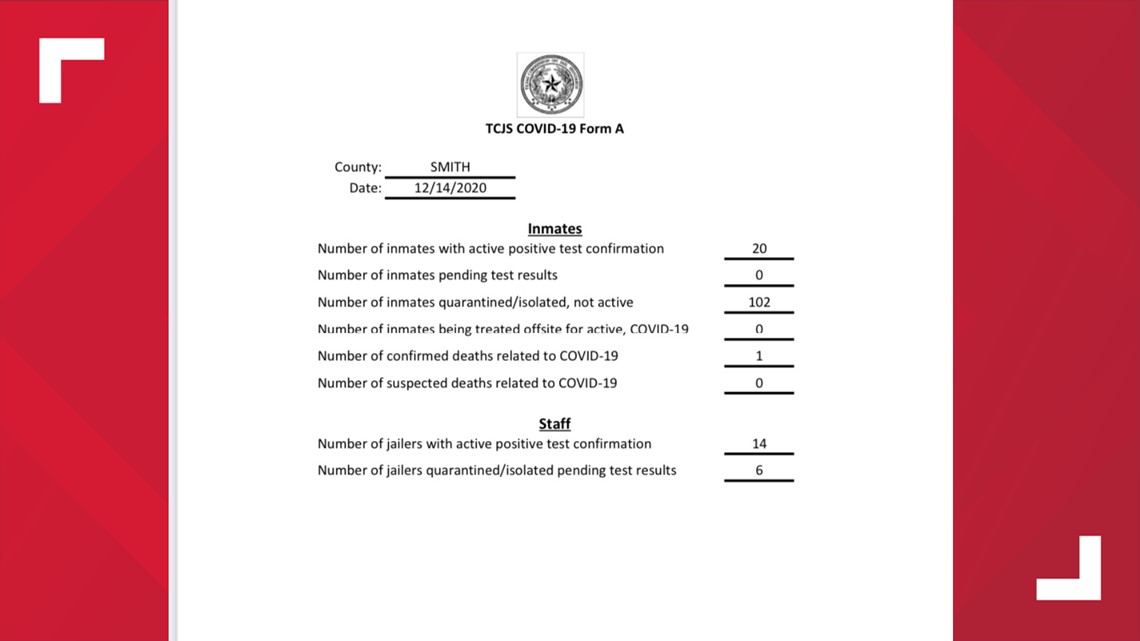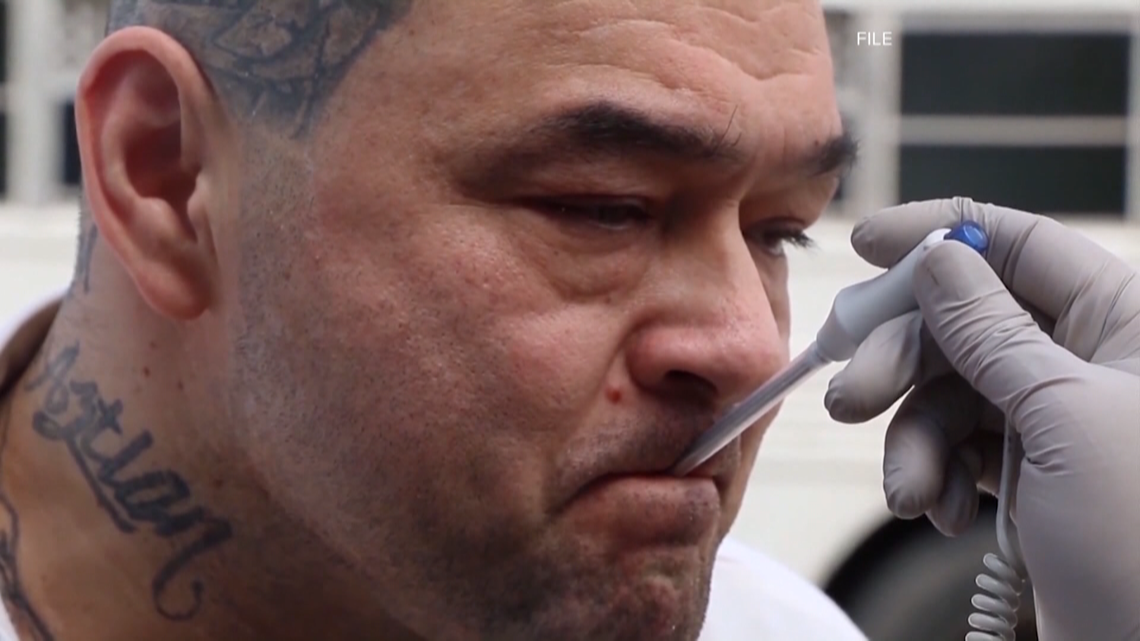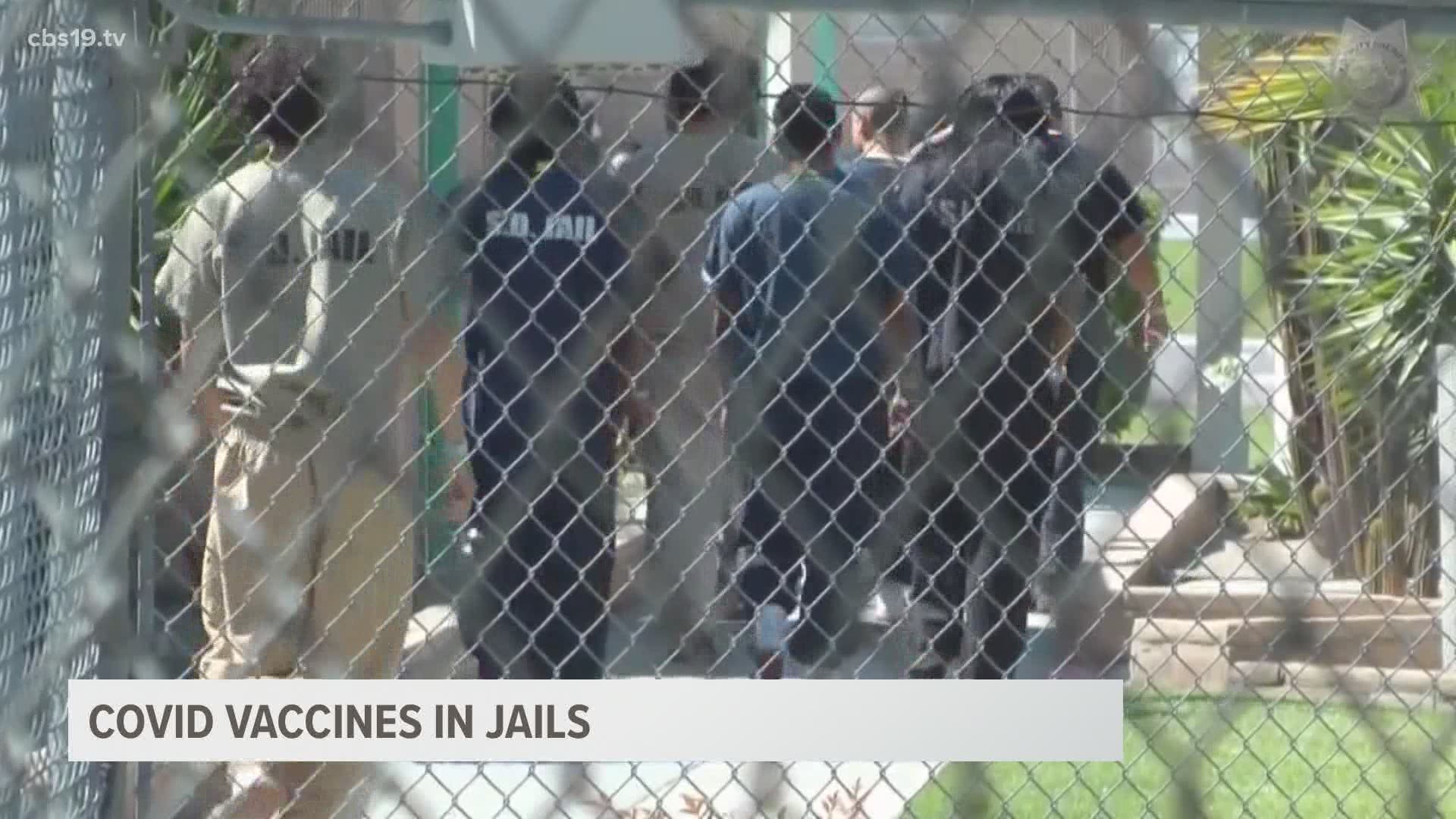SMITH COUNTY, Texas — As the first batch of COVID-19 vaccines arrives in East Texas, many inmates don't feel they're safe from the coronavirus while they're serving time.
Krystopher Free was released from the Smith County Jail in November.
"We were all scrunched up in one cell altogether,” Free said. “I went in there, the cell that I was in, they said that the whole tank got infected with COVID-19 not too long ago.”
Jails and prisons have been hotspots for the virus since March.
A recent update from Smith County Jail shows current active COVID-19 cases among inmates and staff.


Smith County Sheriff, Larry Smith, says they’re doing the best that they can.
“We get crowded," Sheriff Smith said. "We’re at peak population now — this domino effect which is why advocates are pushing for vaccine priority. I believe law enforcement is in the 1B phase of the rollout and I’m hoping that will include detainees in our jail."
Texas will receive more than 220,000 doses of Pfizer's COVID-19 vaccine in the first week of distribution, state health officials say.
Those doses will be shipping to 109 hospitals across 34 counties, according to the Texas Department of State Health Services (DSHS).
The vaccine plan from DSHS prioritizes hospital staff who work with patients, home health care workers, and staff and residents at long-term care facilities as the focus for early vaccination.
FIRST TIER OF VACCINE RECIPIENTS
- Hospital staff working directly with patients who are positive or at high risk for COVID-19 (includes: physicians, nurses, respiratory therapists, and other support staff; additional clinical staff providing supporting laboratory, pharmacy, diagnostic, and/or rehabilitation services).
- Long-term care staff working directly with vulnerable residents (includes: direct care providers at nursing homes, assisted living facilities, and state-supported living centers, physicians, nurses, personal care assistants, custodial, food service staff).
- EMS providers who engage in 911 emergency services like pre-hospital care and transport.
- Home health care workers including hospice care who directly interface with vulnerable and high-risk patients.
- Residents of long-term care facilities.
SECOND TIER OF VACCINE RECIPIENTS
- Staff in outpatient care offices who interact with symptomatic patients (includes physicians, nurses, and other support staff; clinical staff providing diagnostic, laboratory, and/or rehabilitation services; non-911 transport for routine care.
- Direct care staff in freestanding emergency medical care facilities and urgent care clinics.
- Community pharmacy staff who may provide direct services to clients, including vaccination or testing for individuals who may have COVID-19.
- Public health and emergency response staff directly involved in the administration of COVID-19 testing and vaccinations.
- Last responders who provide mortuary or death services to decedents with COVID-19 (includes embalmers and funeral home workers who have direct contact with decedents; medical examiners and other medical certifiers who have direct contact with decedents).
- School nurses who provide health care to students and teachers.


On Saturday afternoon, Gov. Greg Abbott tweeted Texas is expected to receive more doses in December than the number of residents who have tested positive for the novel coronavirus during the pandemic.
Earlier this month, Abbott said the Centers for Disease Control and Prevention (CDC) has slated Texas to receive more than 1.4 million doses of vaccine by the end of the year.
The Pfizer vaccine was approved by the Federal Drug Administration (FDA) and the CDC on Friday and Saturday respectively, making the U.S. the fourth country to begin administering the shot.
Another vaccine by Moderna will be reviewed by an FDA advisory panel this week and could be allowed for public use soon afterward.
However, as of now, it is still unclear when incarcerated Texans will be able to receive the vaccine, but activists and deputies hope it will be sometime soon.

